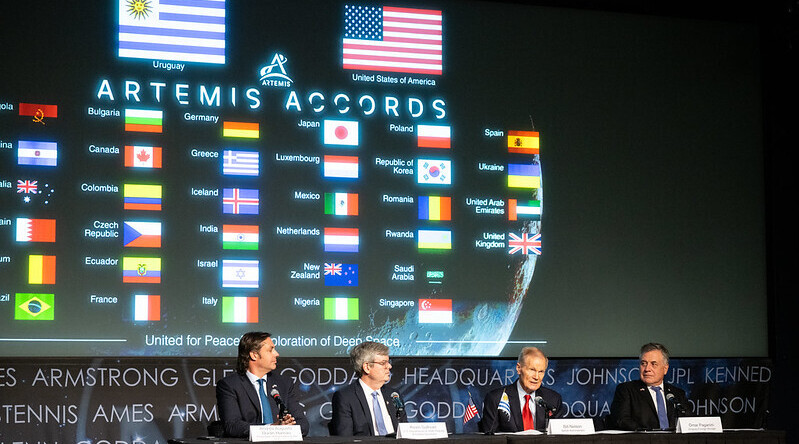- "Missed Opportunities" by David C. Speedie
- "Holding Holding Contradictory Ideas at the Same Time" by Gary Sick
"Missed Opportunities" by David C. Speedie
Some years ago, when marital fissures appeared in the foundations of Britain's royal family, the irreverent comment was that while one divorce in any year was regrettable, two seemed like downright carelessness.
A paraphrasing of this might apply to the saga of the two recent, and failed, attempts to carry out a nuclear fuel swap involving Iran. To recapitulate briefly: last October, a deal was proposed (with U.S. support) that Iran would yield some 70 percent of its enriched uranium for reprocessing, by Russia via France, to be returned as low-grade uranium for peaceful purposes , namely energy and medical radiological treatment. Iran balked for two main reasons: first, that it would take a year for the transfer to be completed; second, because, contrary to Iran's insistence, the deal would not take place on Iranian soil. (In this latter regard, Iran's position was hardly unreasonable, given that all would be carried out under International Atomic Energy Agency [IAEA] auspices).
Six months later, a similar deal is mooted after negotiations among Iran, Brazil and Turkey. This time, it is the United States that has thrown the wrench in the works, ostensibly because, since the last proposed exchange in October, Iran has continued to enrich uranium. Thus, while the original deal would have captured 70 percent of Iranian stocks, now only between 55 and 60 percent would be involved.
This seems, to say the least, a reach. For one thing, Iran has made no secret of its enrichment plans, and has reported these in letters to the IAEA. Rather, it would seem that the United States is in a bit of a snit over its perceived diplomatic "coup" (the claim that Russia and China will support a new round of punitive sanctions against Iran) being trumped by something as irksome and inconvenient as an actual solution, or at least a breakthrough in the Iranian enrichment dilemma. It is, in other words, a triumph of short-term tactics over long-term strategy.
But it is even more regrettable an outcome when we consider the role of the other two players in this proposal; Brazil and Turkey. These are two middle-powers, and rising ones, in terms of economic and geostrategic clout (see also Carnegie Council's ongoing series of discussions on "The Rise of the Rest"). To dismiss peremptorily both the diplomatic skill and the positive intentions is, to say the least, myopic. The administration's approach to foreign policy, in words at least, has been framed in a commitment to global engagement, to working in tandem with others, and thus to restore a moral authority for the United States that had been lost. This is anti-engagement, and not only is it distasteful—involving as it does two countries we regard as allies—it is quite fanciful, harking back to a world order that is inevitably changing. In the context at hand, one may quote Graham Fuller, a former CIA officer, in The Christian Science Monitor (Brazil and Turkey are vital checks and balances, May 24):
But do we really believe [The United States] has in fact garnered Russian and Chinese support? Just as Tehran had every incentive to accept a proposal from "equals," offered with respect instead of bluster and threats, so too Russia and China have every reason to welcome this initiative from Brazil and Turkey. Yes, the terms of the agreement do matter somewhat, but what is far more important to them is the slow but inexorable decay of U.S. ability to deliver international diktats and to have its way. This is what Chinese and Russian foreign-policy strategy is all about. Neither of these countries will, in the end, permit the U.S. hard-line approach to win out over the Brazilian-Turkish one in the Security Council, even if the Brazilian-Turkish deal requires a little tweaking. Russia and China champion the emergence of multiple sources of global power and influence that chip away at dying American unipolar power" [my emphasis].
The important point here is that it is not American power, but unipolar power, that is waning. It would be ludicrous to dismiss the role of the United States, which, by dint of economic and military primacy, will play at very least a primus inter pares role in global affairs. What would be regrettable would be to allow our diplomatic influence to slip, and what is especially to be regretted in U.S.-Iran relations is what seems to be an ongoing zero-sum game, in which what is good for them is bad for us, and vice versa. To quote the observation from diplomacy, we never seem to miss an opportunity to miss an opportunity. This is the theme of a recent article by Dr. Gary Sick, professor emeritus at Columbia, and sage observer of U.S.-Iranian relations since his role as a State Department official involved in negotiations during the Iran hostage crisis in 1979. It is reprinted here, in the hope that this and other sensible interventions may move the U.S.-Iran dialogue beyond the current mutually recriminatory stalemate.
"Holding Contradictory Ideas at the Same Time" by Gary Sick
F. Scott Fitzgerald famously said that "the true test of a first-rate mind is the ability to hold two contradictory ideas at the same time." Without casting aspersions on the quality of mind of political analysts who express themselves on Iran and the state of U.S.-Iran relations, very few would pass the FSF test. When dealing with Iran and the United States, it is dangerously easy to fall into the comparative victimization trap, in which one side is victim and the other victimizer. The fact that both sides may be both victims and victimizer seems too difficult to hold in the mind at the same time.
First there is the historical narrative. Commentators tend to focus on the unreliability or deviousness of the other. Westerners can scarcely avoid being aware of repeated assertions that Iran is merely using negotiations to stall for time while it builds a nuclear weapon and that Iran routinely accepts agreements only to walk away from them. They are less likely to recall the declaration by George H.W. Bush that "Good will begets good will"—an offer of reciprocity if Iran assisted the United States in freeing American hostages in Lebanon—only to walk away after Iran fulfilled its part of the bargain.
The reality is that both sides have repeatedly missed opportunities to improve relations and both, at times, have even appeared to actively cultivate confrontation. Is that a pair of ideas that we can hold in our minds at the same time?
Then there is the interpretive divide. The United States and many in the West point to Iran's unwillingness to address questions about its possible past experimentation with nuclear weaponization, its unwillingness to accept full inspection of its nuclear facilities, its determination to pursue a program of uranium enrichment that seems either excessive or unnecessary in view of its civilian needs, and other suspicious behavior as clear evidence that Iran is hastening to build a nuclear weapon. Iran points to its official position that nuclear weapons are antithetical to Islam, to its sovereign right to develop a nuclear fuel cycle under the terms of the Non-proliferation Treaty, and to repeated assurances by the International Atomic Energy Agency that it has not diverted nuclear material for military purposes, as clear evidence that Western claims of an imminent Iranian nuclear weapon are unfounded and politically motivated.
Western fears are real and not without justification. Iranian assertion of rights cannot just be dismissed. The reality is, while this debate has been raging—with pressure, defiance and much futile bluster and self-righteousness on either side—a decade or more has been lost in which actual progress toward a responsible nuclear agreement might have been possible. If we cannot hold in our minds that a case (but not an airtight case) can be made on either side, we are condemned to a perpetual cycle of recriminations. Both sides have a point. That is what negotiations are for.
Recently in the West there has been a debate about Iran’s repressive behavior and systematic abuse of human rights. Some have argued—implicitly or explicitly—that Iran’s behavior is so abhorrent that the international community should not, cannot, engage with it until it changes its behavior. Some would carry this further and argue that true engagement will be impossible until there is a change of regime. On the other side, a number of observers maintain that engagement is not a badge of approval but rather is based on the pursuit of important national interests; Iran's misbehavior, in this view, is no different than Maoist China or Stalinist Russia, which did not prevent us from negotiating successfully. Some have pushed this idea further, arguing that the so-called Green Movement in Iran never represented more than a small fraction of Iran’s population and we should therefore not permit it to distract us from our objective of engagement.
This is a false dichotomy. It is the window dressing of two opposing agendas: one has long pushed for regime change in Iran, even if that requires active Western encouragement; the other has promoted negotiation of all outstanding issues on the basis of mutual respect. The first is unwilling to concede any positive attributes to Iran; the other is inclined to mute negative images since they not only impede progress toward any negotiated settlement but could represent, a la Iraq, the justification for military action.
In my view both are wrong. These are indeed two contradictory ideas that must be held in the mind at the same time. Serious engagement with Iran should not imply giving Iran a free pass for its abusive behavior. In fact, experience with other repressive regimes not only suggests that it is possible to pursue mutually beneficial security objectives while remaining highly critical of abuses, but that the very act of drawing such a regime into the international community may lead it to revise its behavior out of its own self-interest. It was possible to devise nuclear arrangements with the Soviet Union while simultaneously negotiating the Helsinki Accords that gave rise to the modern human rights movement and arguably had a powerful effect on the treatment of dissidents by the then-USSR.
Political imperatives in the West and in Iran drive each side to selectively construct its image of the other. We (the West and Iran) justify our own behavior by emphasizing only the acts and the traits of the other that make us appear righteous in our own eyes or in the eyes of our constituents. That is all too human. It is easy to understand and difficult to change. But it is a recipe for perpetual strife.
First posted May 22, 2010, on Gary Sick's blog. Posted here with kind permission.





